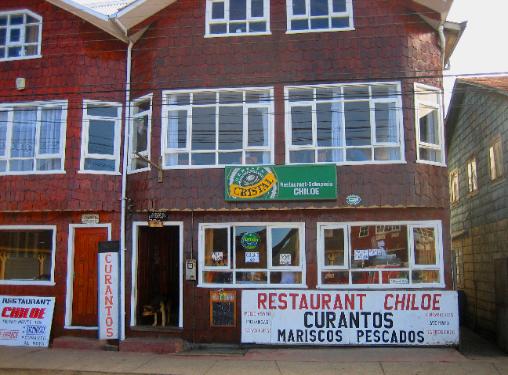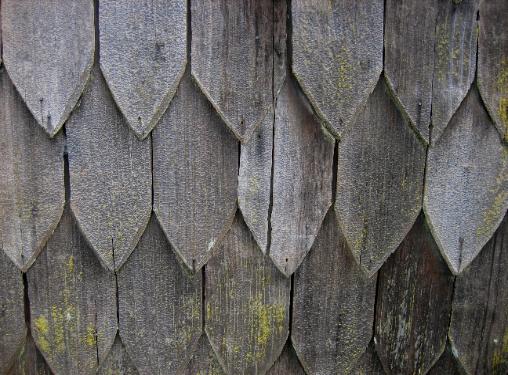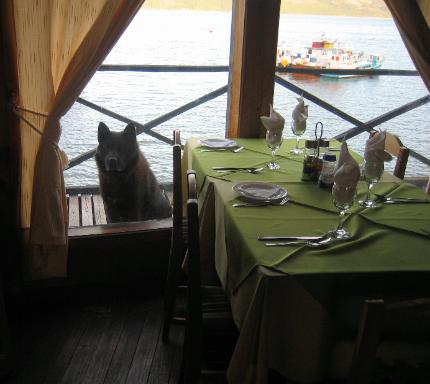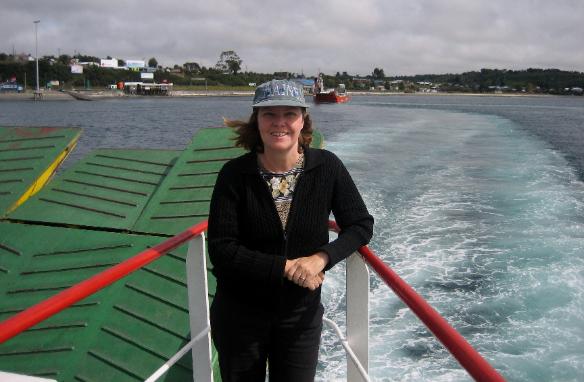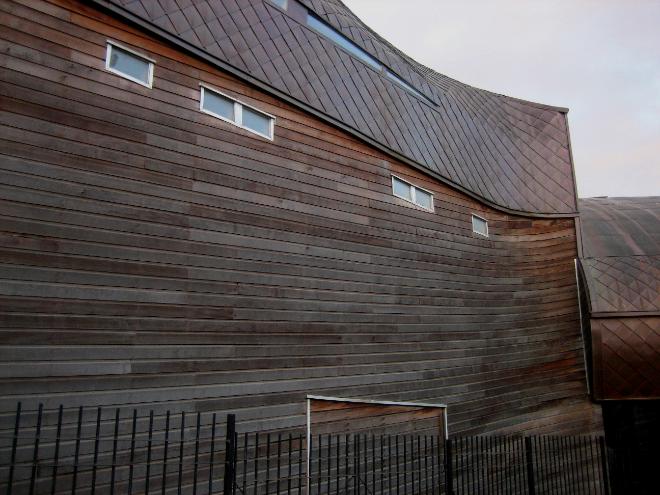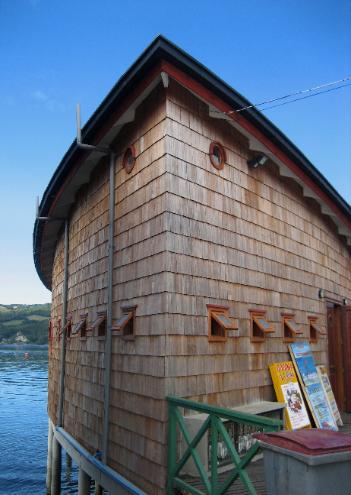
Where We Be
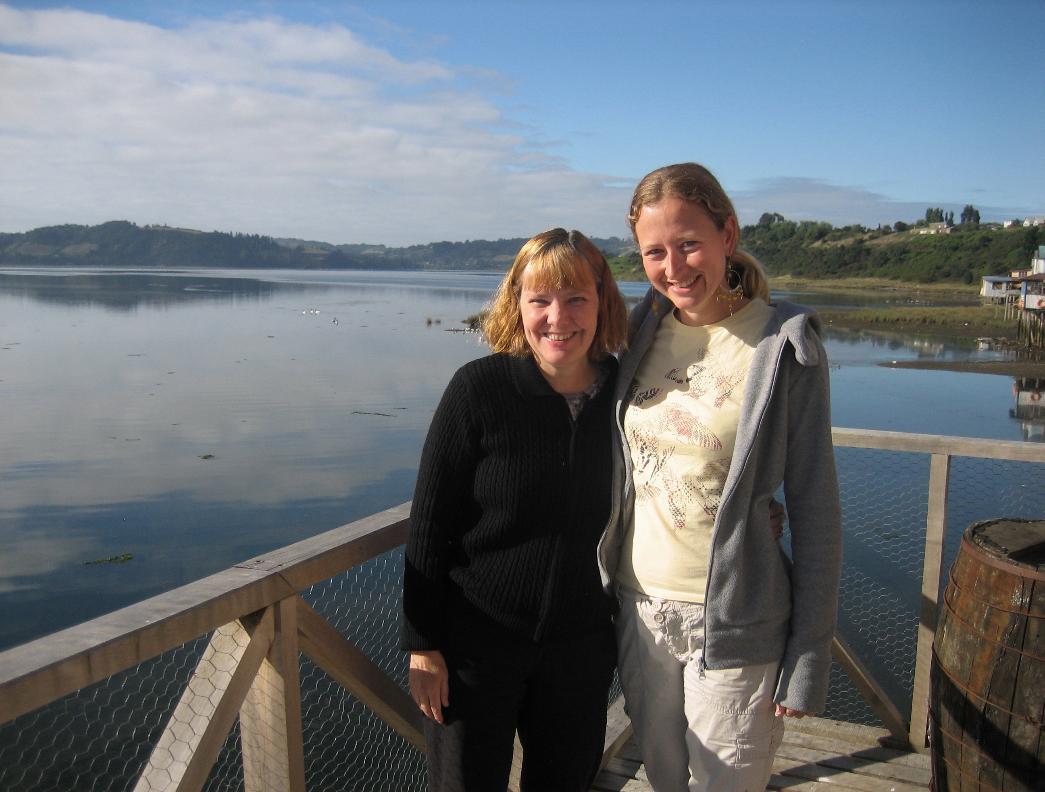
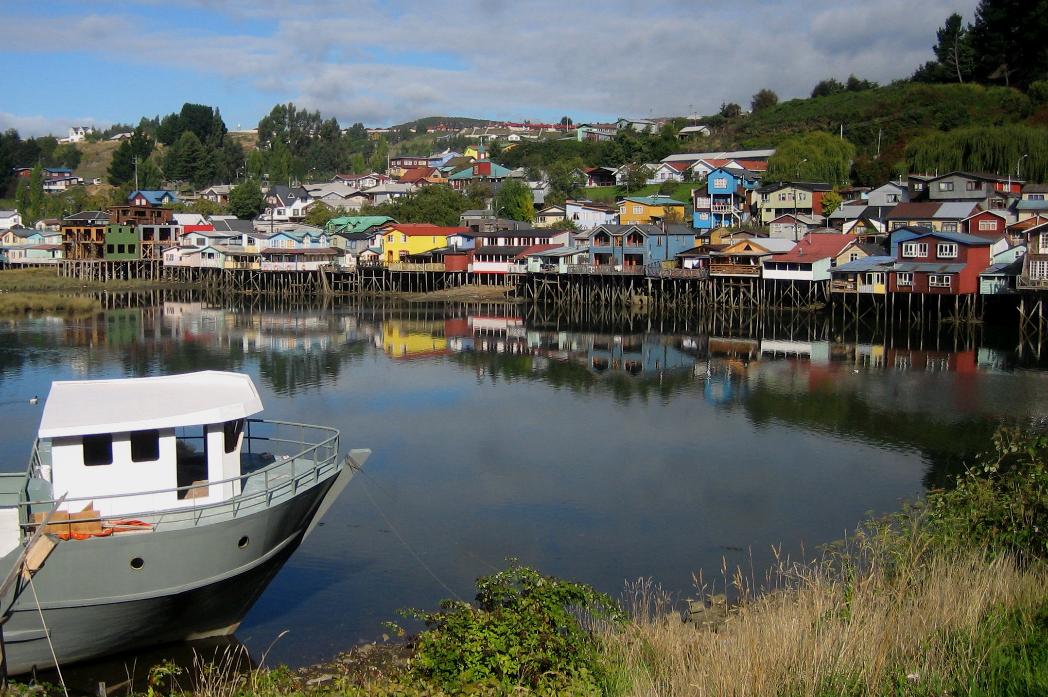
| Chiloé Island, Chile |
Chiloé is the second-largest island in Chile (after
Tierra del Fuego) and is known for having a laid-
back vibe and a cultural heritage different from the
rest of Chile. The island is steeped in fisherman
imagery and lore; even the cathedral ceilings look
like inverted boat hulls. Each town has its own
church, and the churches are unique enough, with
their wooden shingles and their odd construction
techniques (using wooden pegs instead of nails),
that several are UNESCO World Heritage sites.
It took us four hours to get from Puerto Varas to
Castro, Chiloé's main city, by bus and ferry. We
stayed at the lovely Palafito Hostel, a traditional
stilt-house located right over the water. We spent
our first day seeing Castro, enjoying the sun in a
place where rain is far more typical. That evening
we feasted on curanto, the most famous of the
local seafood dishes for which Chiloé is known.
On our second day, we joined our new friend
Georgie from London (who we met at the hostel)
and visited three different nearby towns by bus –
Dalcahue, Curaco de Velez, and Achao. These
picturesque, sleepy little towns set amongst rolling
green hills give a good sense of what daily life is
like in Chiloé.
Tierra del Fuego) and is known for having a laid-
back vibe and a cultural heritage different from the
rest of Chile. The island is steeped in fisherman
imagery and lore; even the cathedral ceilings look
like inverted boat hulls. Each town has its own
church, and the churches are unique enough, with
their wooden shingles and their odd construction
techniques (using wooden pegs instead of nails),
that several are UNESCO World Heritage sites.
It took us four hours to get from Puerto Varas to
Castro, Chiloé's main city, by bus and ferry. We
stayed at the lovely Palafito Hostel, a traditional
stilt-house located right over the water. We spent
our first day seeing Castro, enjoying the sun in a
place where rain is far more typical. That evening
we feasted on curanto, the most famous of the
local seafood dishes for which Chiloé is known.
On our second day, we joined our new friend
Georgie from London (who we met at the hostel)
and visited three different nearby towns by bus –
Dalcahue, Curaco de Velez, and Achao. These
picturesque, sleepy little towns set amongst rolling
green hills give a good sense of what daily life is
like in Chiloé.
| The cathedral in Castro |
| Interior of the cathedral with its beautiful natural wood construction |
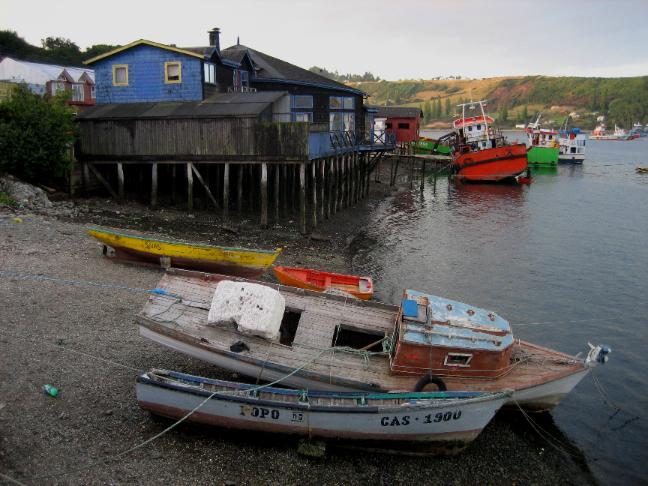
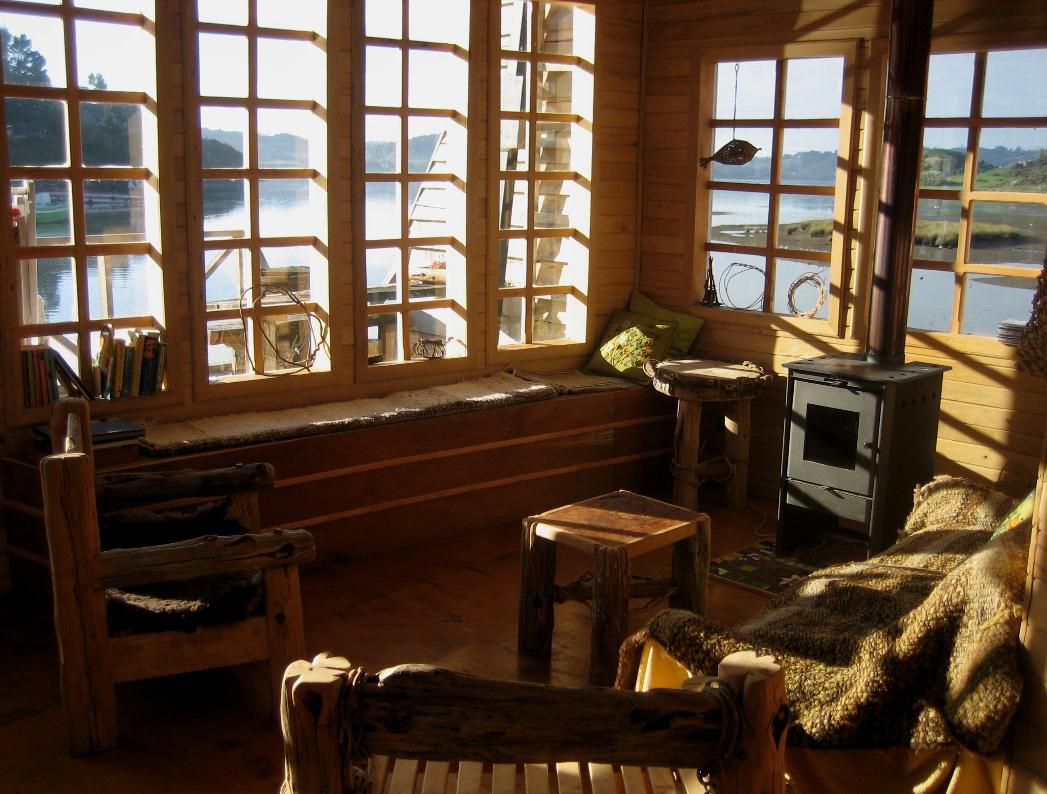
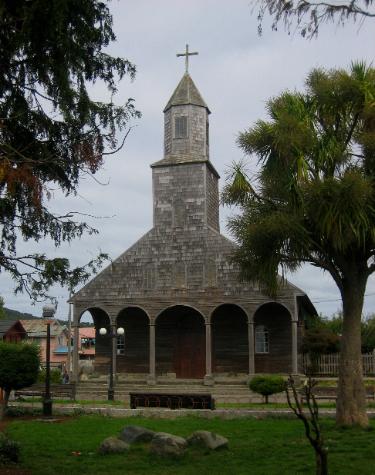
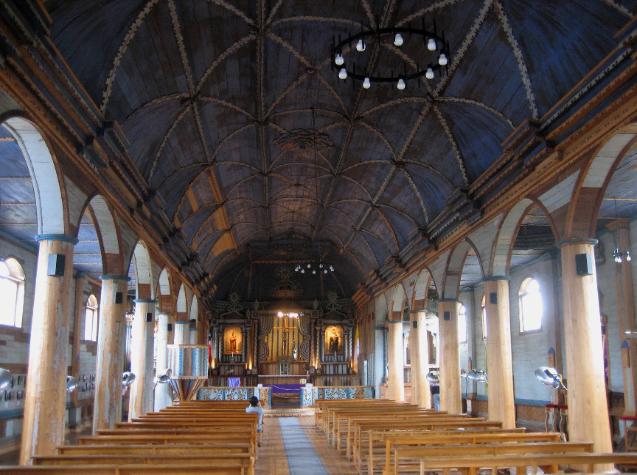
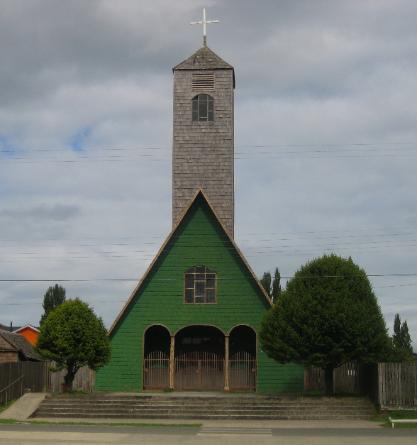
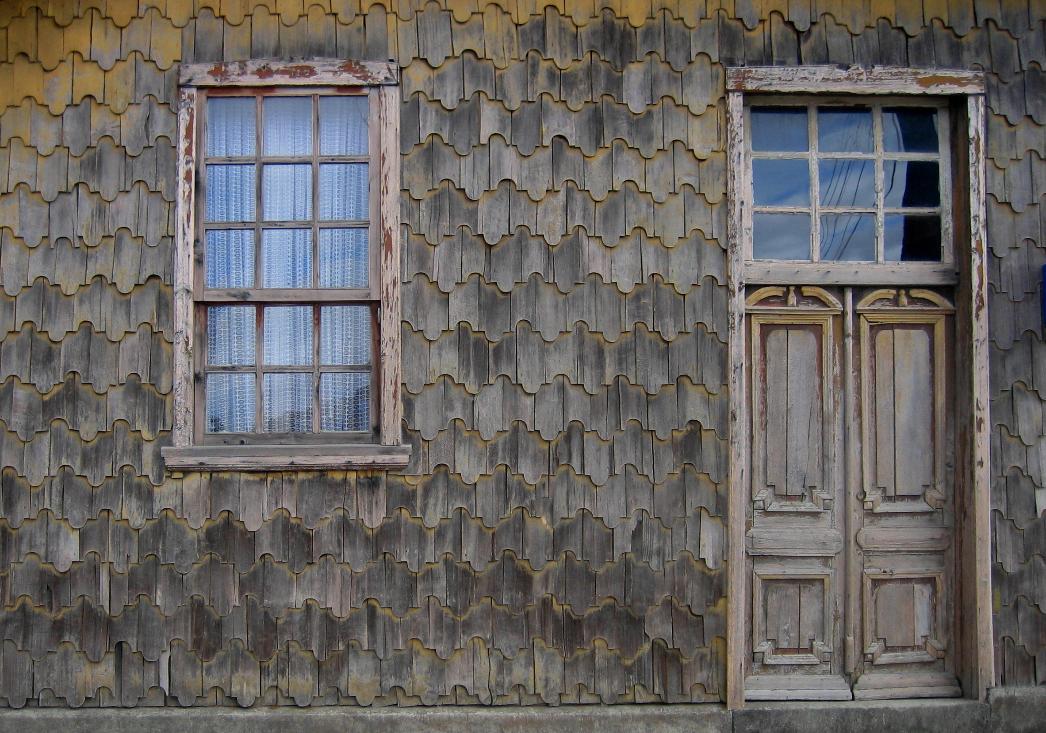
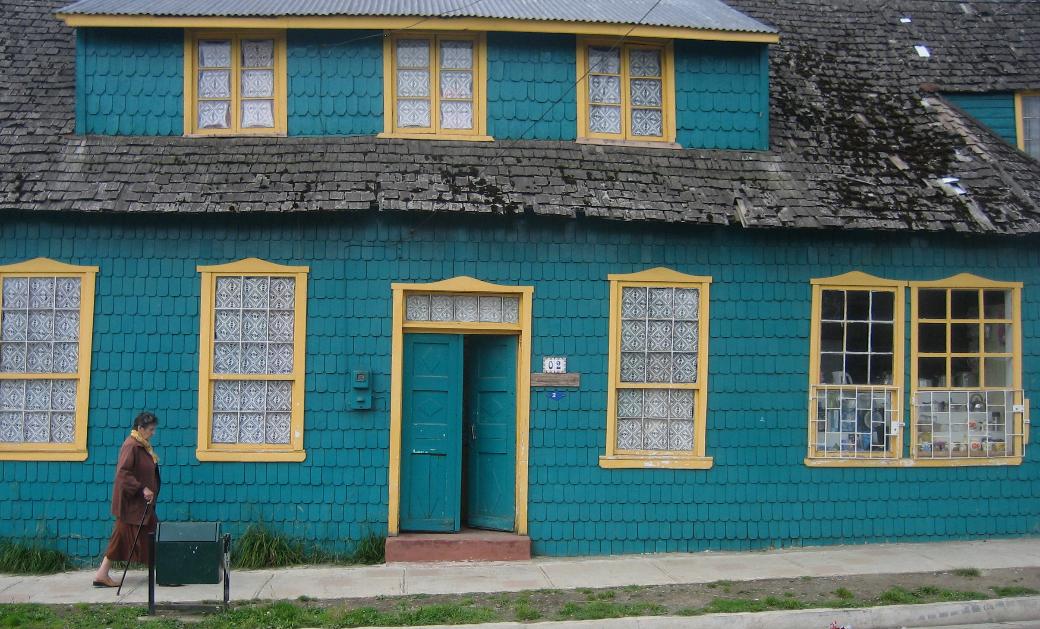

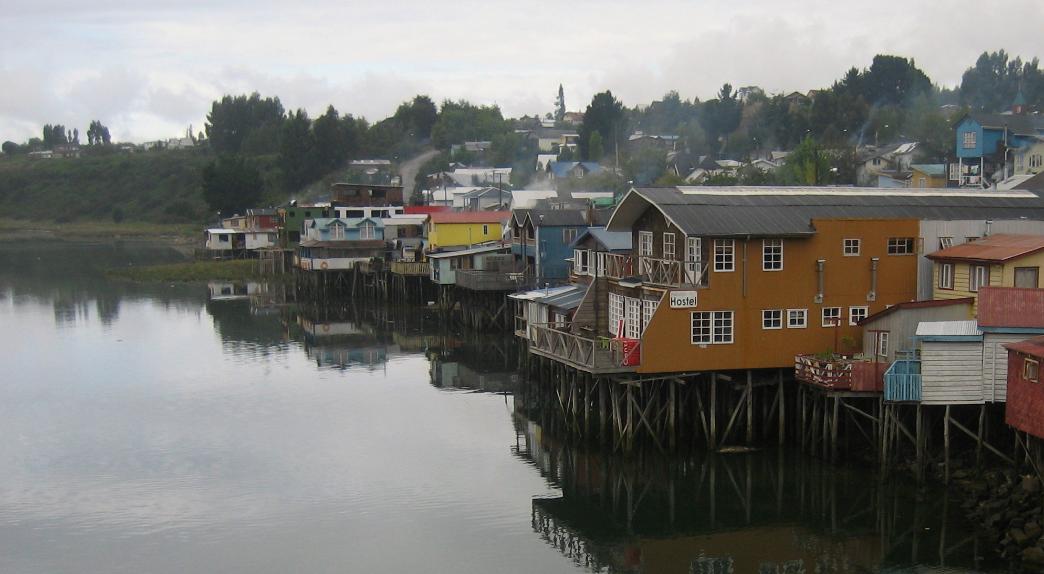
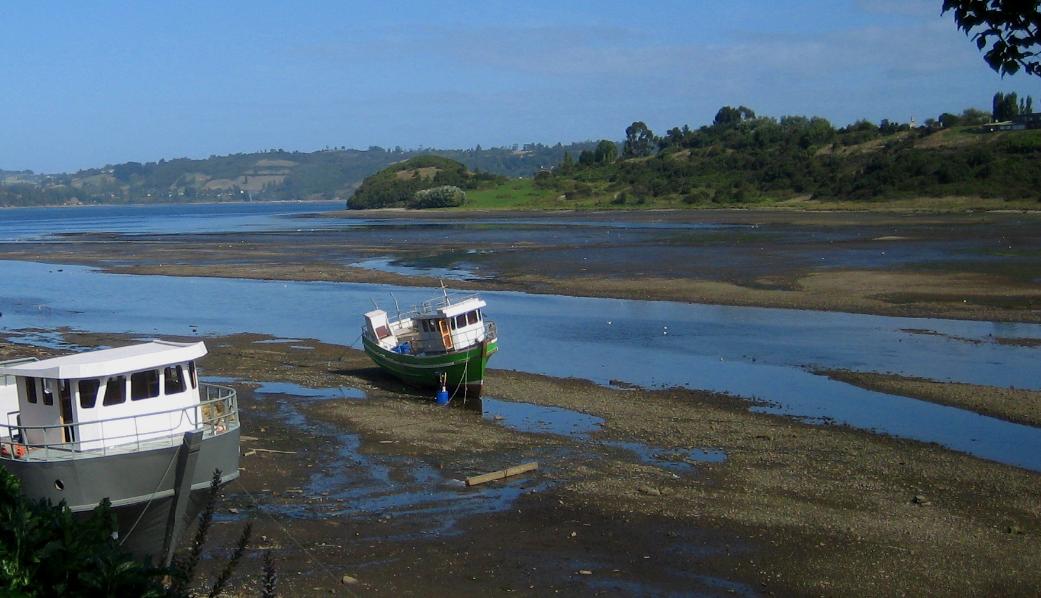
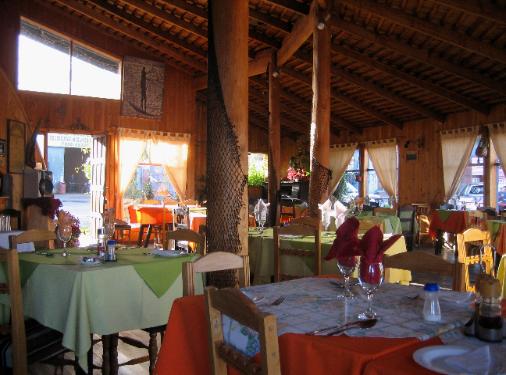
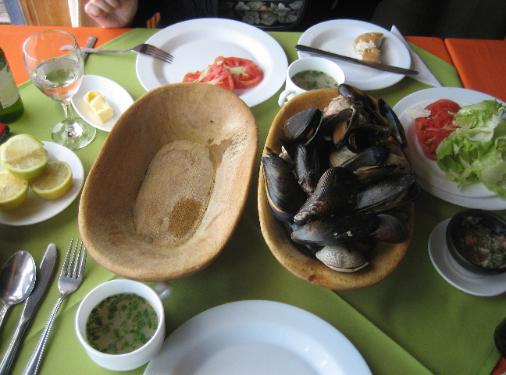
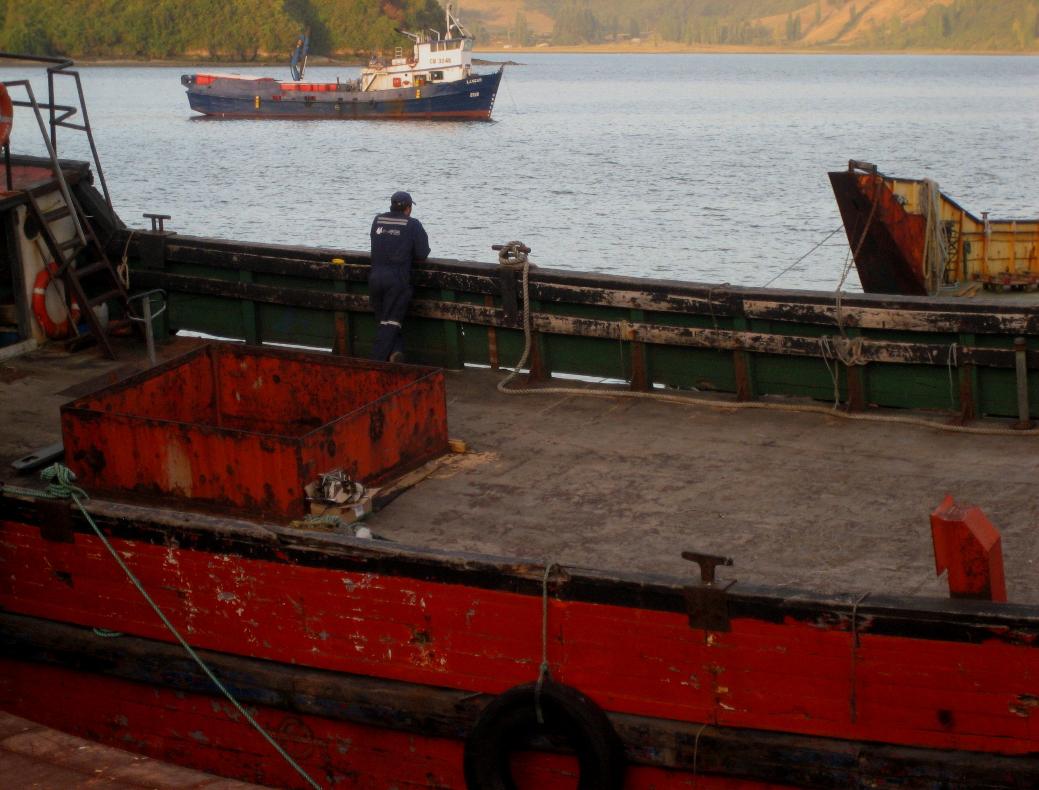
| At Octavio's in Castro, we tried Chiloé's most famous dish, "curanto," an odd mix of mussels, clams, sausage, chicken, pork, potatoes, pancakes, and broth |
| This is the unique-looking church in Curaco de Velez, with its wood-shingled tower and A-frame nave |
| The last thing we expected to see on the sleepy island of Chiloé was a rapper performing for us on the bus while it sat on the ferry! |
| The cathedral in Achao is the oldest in Chiloé (built 1730). The ceiling looks like an inverted boat hull. |
| Weatherbeaten wooden shingles up close |
| Seafood is what it's all about on Chiloé |
| Happy to be on a weekend getaway |
| Dog wondering when his dinner is served |
| We saw numerous examples of ship-like architecture in Castro |
| Weatherbeaten "palafito" homes on stilts and colorfully painted boats are highlights in Castro |
| Rows of palafito homes set over the water in Castro create a tranquil scene |
| This is the living room of the lovely Palafito Hostel where we stayed for two nights in Castro |
| Traditional wooden shingles are found everywhere on Chiloé, carved into a variety of interesting geometrical patterns |
| We struck up a friendship with Georgie from London and spent the day together visiting nearby towns |
| It was a treat getting to stay in an actual palafito (the Palafito Hostel is the building with the white "Hostel" sign) |
| Huge changes in tide create mudflats for half of each day, temporarily stranding boats and leaving the palafitos high and dry |
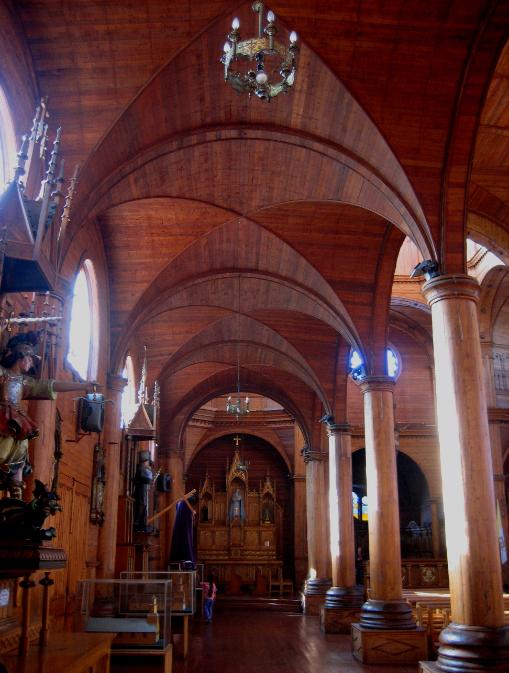
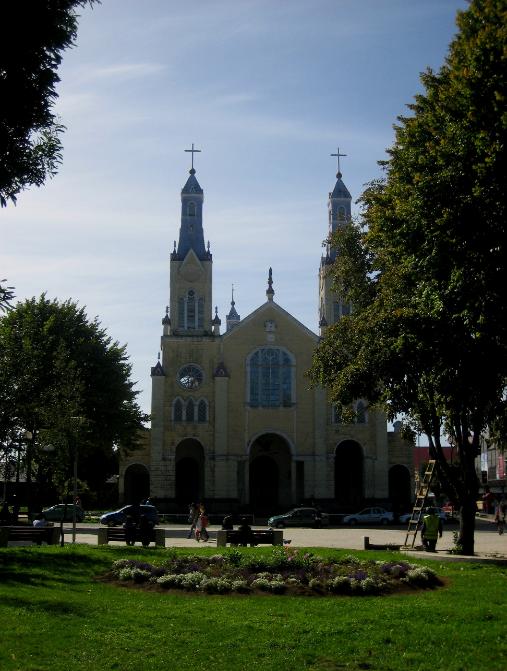
| Colorful shingled home in Curaco de Velez |
| A fisherman takes in the local scenery |
